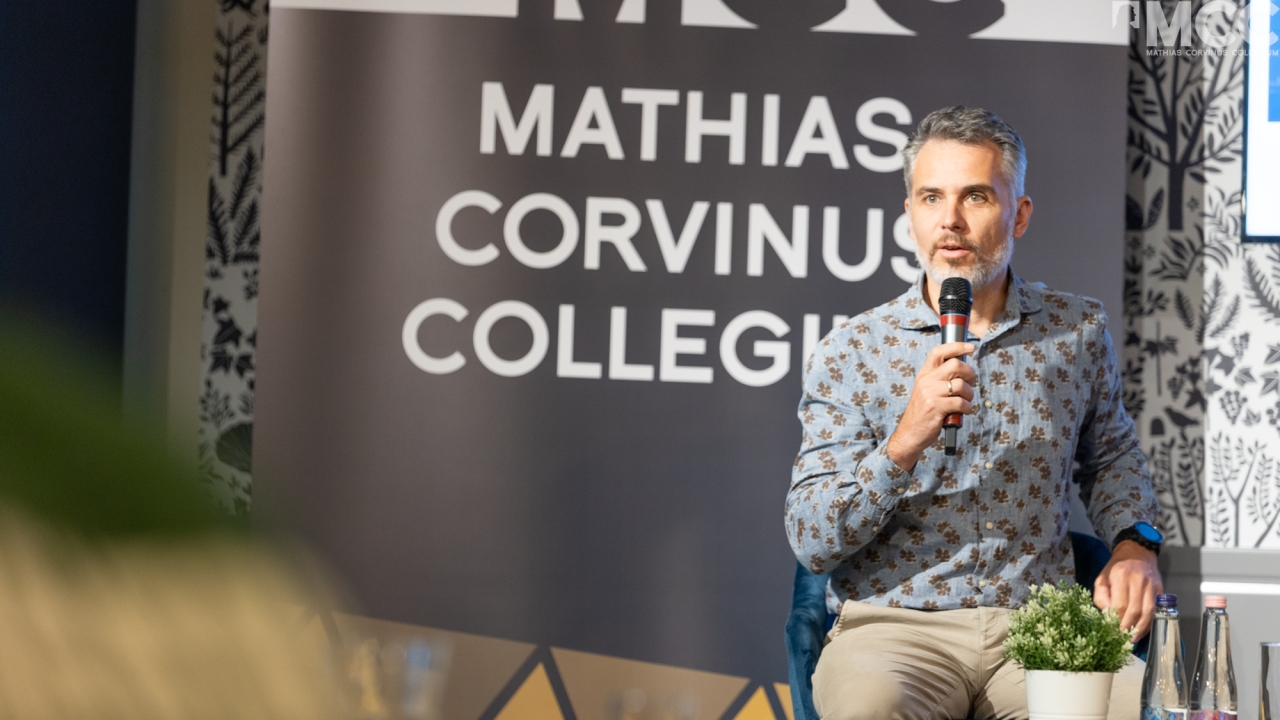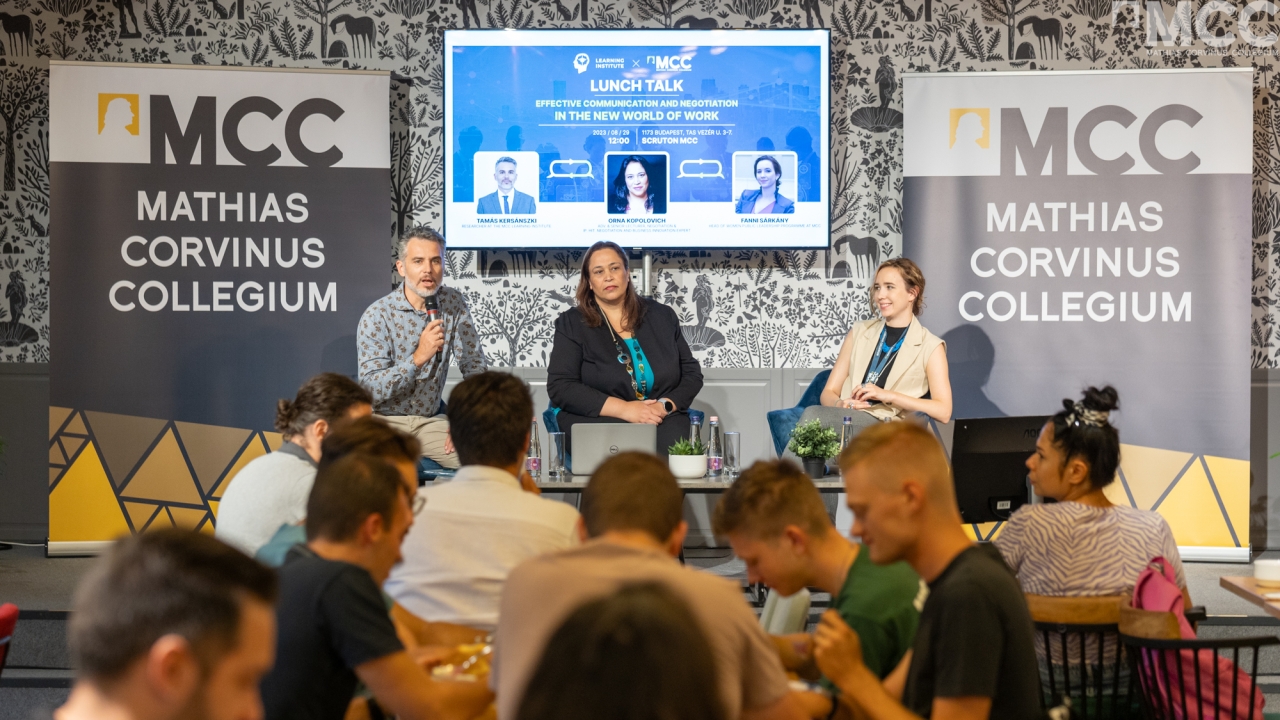Reading time: 2 minutes
On August 29th, MCC’s Learning Research Institute welcomed Orna Kopolovich, Head of the Center for Negotiation Management and Business Innovation at Holon Institute of Technology (HIT), to its Budapest campus. Besides her role at HIT, Kopolovich studied executive negotiation at Harvard and has been a senior trainer, mediator, and negotiation management researcher for several years.
HIT is a unique multidisciplinary academic institution that promotes the "Hi-Tech Nation" concept through its groundbreaking emphasis on creativity, research, and development. Through its ambitious and forward-looking approach, the Israeli institute is on the cutting-edge of innovation and entrepreneurship.
During her visit to MCC, the Israeli researcher participated in a panel discussion with Fanni Sárkány, Head of MCC’s Women's Public Leadership Training Program, and Tamás Kersánszki, a researcher at the Learning Institute.
Focusing on the dynamics and differences between hybrid and traditional work models, the panel addressed various topics such as managerial approaches to personal communication styles on various communication platforms and its effect on an organization’s ability to communicate effectively and maintain cohesion. The panel also discussed the role of gender and the role of women in professional endeavors.
Ms. Kopolovich emphasized that in Israel, most companies regularly use AI including early education. However, she noted, non-technological factors, such as body language and handshakes, are also crucial communication tools. 'A handshake is like a capsule of knowledge', she said. The expert advised the panel audience to utilize body language consciously and by first placing oneself in the other person's position before making decisions. Finding a method of communication that will foster business and innovation, she stressed, is crucial.
On the topic of gender equality, Ms. Kopolovich argued that it is vital to promote gender equality in entrepreneurship and start-ups. She pointed out that despite Israel’s well-known reputation for being a startup and innovation hotspot, women are still disproportionately underrepresented, with the optimum leadership mix being 50% female and 50% male. She lamented that the percentage of women in leadership positions in research, innovation, and technology, however, is only around 33% in Israel, and firms with female founders in Central Europe only obtain 1% of the available funding.
The other panelists largely agreed with her observations, noting that women are interested in social issues and are aware of the positive impact they can have on society. Although the number of women leaders has recently increased, many women still lack the courage to pursue careers in entrepreneurship or innovation and need greater support to become leaders in these industries. Kopolovich suggested providing more incentives for women could result in ground-breaking innovations.




